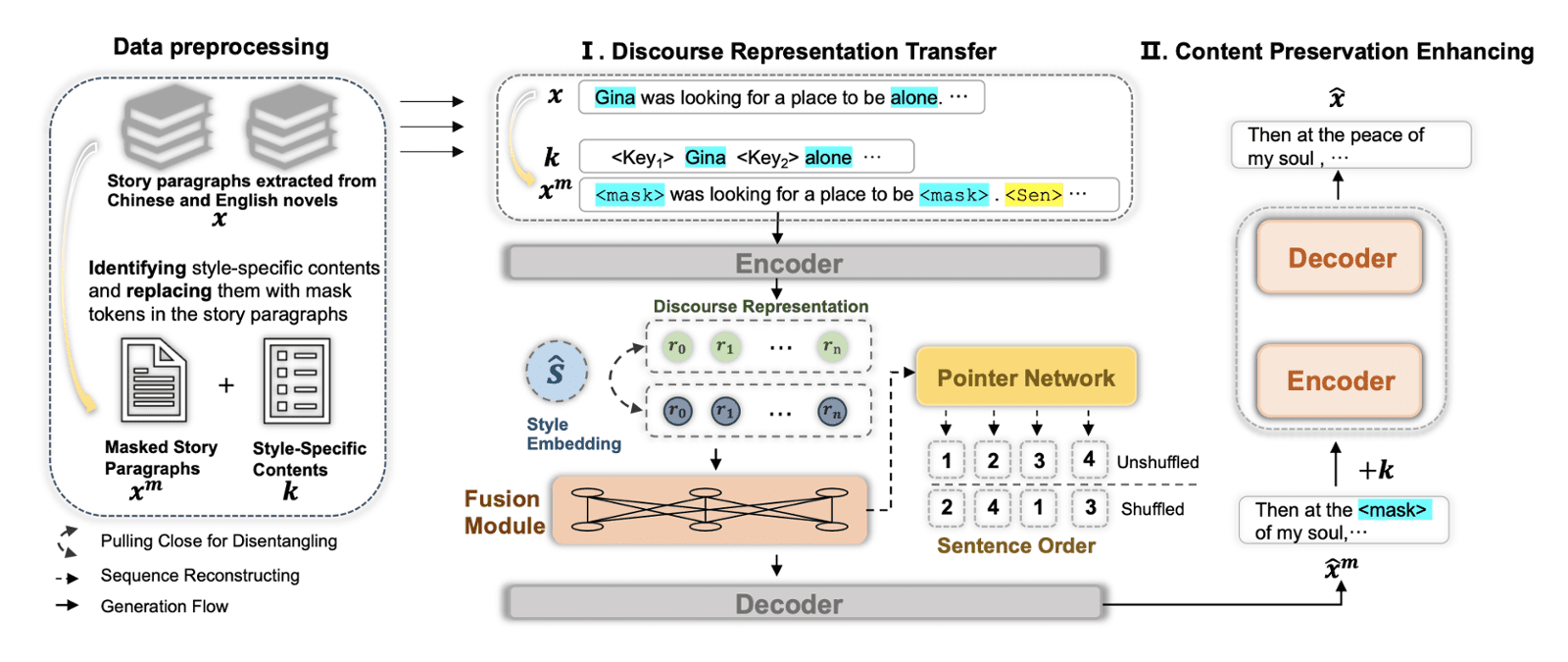
Over the past few years, several AI-powered writing apps have emerged. Laika, Sudowrite, and Novel AI—all include a style feature that applies the writing style of a famous author or genre to generated text. Today, I will share some research related to this style feature.
Researchers from Tsinghua University and Wuhan University propose teaching AI systems to mimic authorial styles. Through a new technique called story-to-story transfer, they can make an AI write like novelists as diverse as Shakespeare or Jin Yong.
Here’s how it works:
- They train a system on a large corpus of different writing styles - like fantasy tales, realist stories, or martial arts adventures.
- The AI learns a representation separating the content of a story from stylistic features like word choice, pacing, etc.
- Given a new story, the system transfers its content into a target style by combining it with learned style features.
For example, a 5-sentence story about a professor’s hike could be rewritten in a fantasy format with kung fu heroes and sword fights added.
The key is the AI’s ability to disentangle style from content. This prevents it from simply copying text or discarding key details when changing styles. The representations help preserve meaning.
In tests, the new technique matched or beat strong natural language systems at accuracy in mimicking famous styles like Shakespeare’s plays. And it produced more coherent stories than other methods.
This approach of mimicking famous writing styles raises ethical questions, just as AI art that copies artistic styles does. While the generated text may pass plagiarism checks, simply because it is not a word-for-word copy, the ethical implications of imitating someone's creative work remain unclear.
Does transforming content into the style of a famous novelist or playwright essentially plagiarize their unique literary voice? What are the rights of AI systems to appropriate the stylistic creations of human writers, even if done through statistical learning rather than verbatim theft? These ethical issues around mimicking personal creative expression warrant further debate as AI generation capabilities advance. While the technology may not produce obvious plagiarism, deeper philosophical questions about imitation and creativity persist.
Bye for now, and stay human (and that means finding your own voice.)


